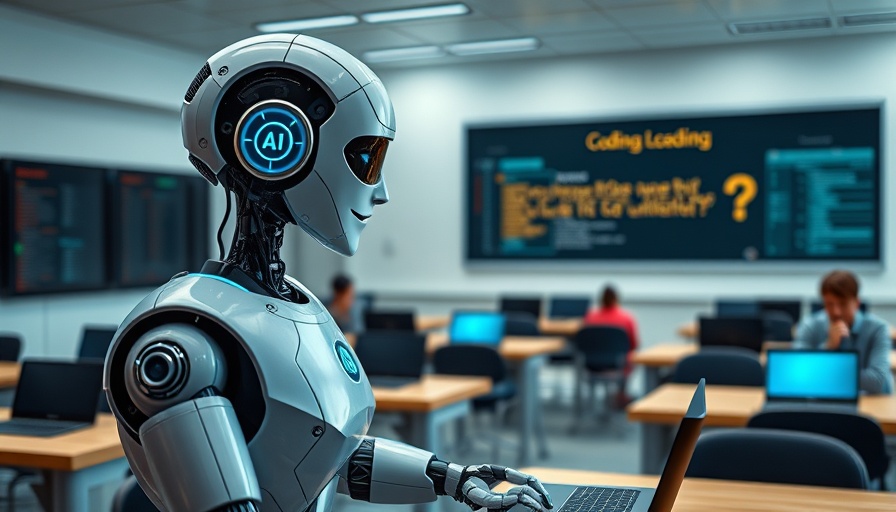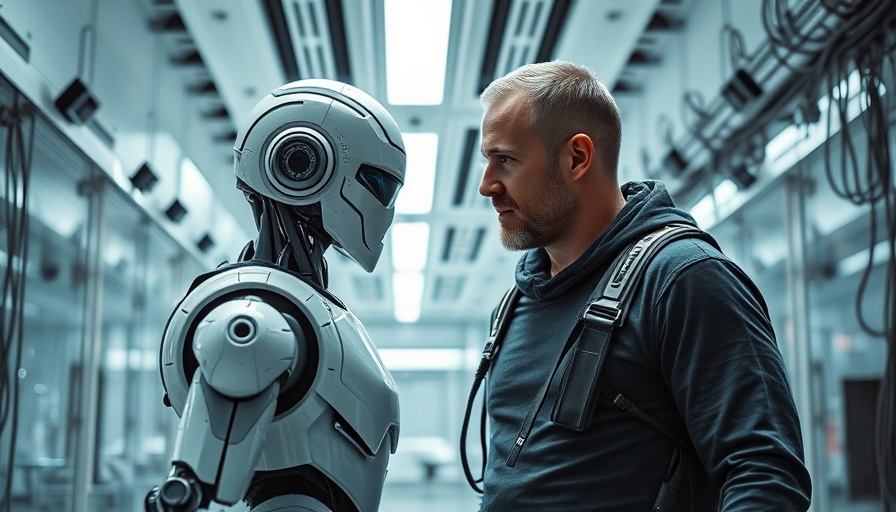
Should You Still Learn to Code in an AI-Driven Era?
As artificial intelligence (AI) rapidly advances, a burning question arises: should anyone learn to code anymore? Recent discussions, notably sparked by Amjad Masad, CEO of Replit, hint at a significant shift in how coding is viewed. His assertion that learning to code may no longer be necessary reflects broader industry sentiments about AI's growing coding capabilities.
In 'Should Anyone Learn to Code Anymore?', the discussion dives into the evolving landscape of coding amidst AI advancements, prompting an analysis of whether traditional coding skills still hold value.
The Rise of AI in Coding
Amjad Masad's tweet about not needing to learn coding plays into a larger narrative—AI is transforming the coding landscape. With tools like Claude 3.5, 3.7, and now Gemini 2.5, the efficiency with which code can be generated has reached unprecedented heights. As predicted by Dario Amade, CEO of Anthropic, a future where AI writes 90% or more of the code isn't far off. The critical question then becomes: if AI can handle the coding, why should humans invest their time in it?
The Human-Inertia Argument
Human inertia and established systems pose significant barriers to adopting fully AI-generated code. While the technology is capable, businesses often resist change. Still, evidence highlights a trend—companies like Y Combinator and Google report AI-generated code making up a substantial portion of their new projects. This raises a thought-provoking point about the relevance of traditional coding skills.
Pros and Cons of Learning to Code
Arguments against learning traditional coding often revolve around the notion of time efficiency. If AI can produce better code faster, focusing on other skills could be more advantageous. However, advocates, including venture capitalist Martin Casado, argue that coding cultivates critical thinking. Notably, Steve Jobs promoted coding as a way to enhance one's problem-solving abilities.
Coding isn't just about output; it's about mindset. Even in a world dominated by AI, understanding coding principles can improve how individuals interact with AI tools. While AI can replicate existing code and carry out repetitive tasks, it may struggle with genuine innovation—an area where skilled human coders shine.
The Future of Coding: Embrace Vibe Coding
The discussion opens up a new paradigm: vibe coding. This emerging methodology emphasizes collaboration with AI tools rather than traditional coding practices. Instead of rote memorization of coding languages, the focus shifts to harnessing AI for creativity and problem-solving. This means learning how to effectively communicate with machines can be far more beneficial than mastering outdated coding techniques.
Innovation in the Age of AI
Considering the broader implications, if someone doesn't see the utility of learning to code, they may be limiting their creative horizons. As AI tools grow more sophisticated, coding as a digital creation field is opened up to wider audiences. This democratization of coding offers extraordinary opportunities for innovation. However, success will hinge on the ability to navigate and utilize these tools effectively.
Conclusion: Start Using AI Now
Embracing the shifting landscape means adapting to the tools and methods of coding 2.0. As AI begins to dominate code generation, the opportunity to focus on higher-level thinking and creative applications becomes paramount. For business owners, the message is clear: do not cling tightly to the past. Instead, start integrating AI tools into your workflows today. The potential for innovation is immense, and the future is in those who can adapt to these new paradigms.
If you're ready to take the plunge and start utilizing AI in your projects, START USING AI NOW to explore how these advances can enhance your business efficiency and creativity.
 Add Row
Add Row  Add
Add 




Write A Comment